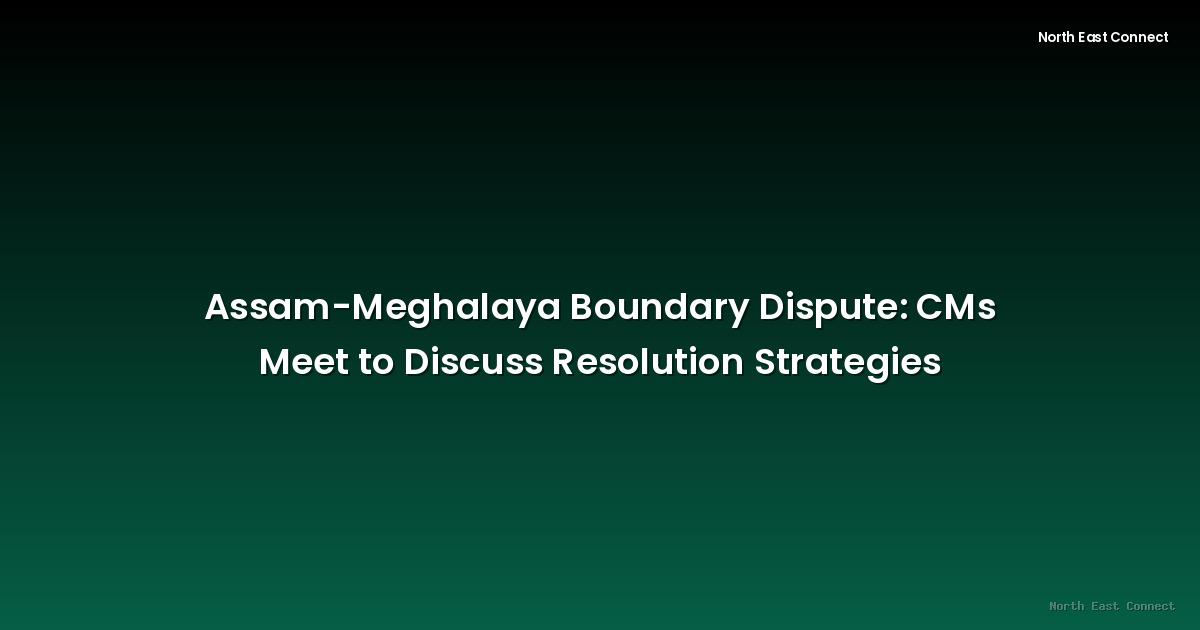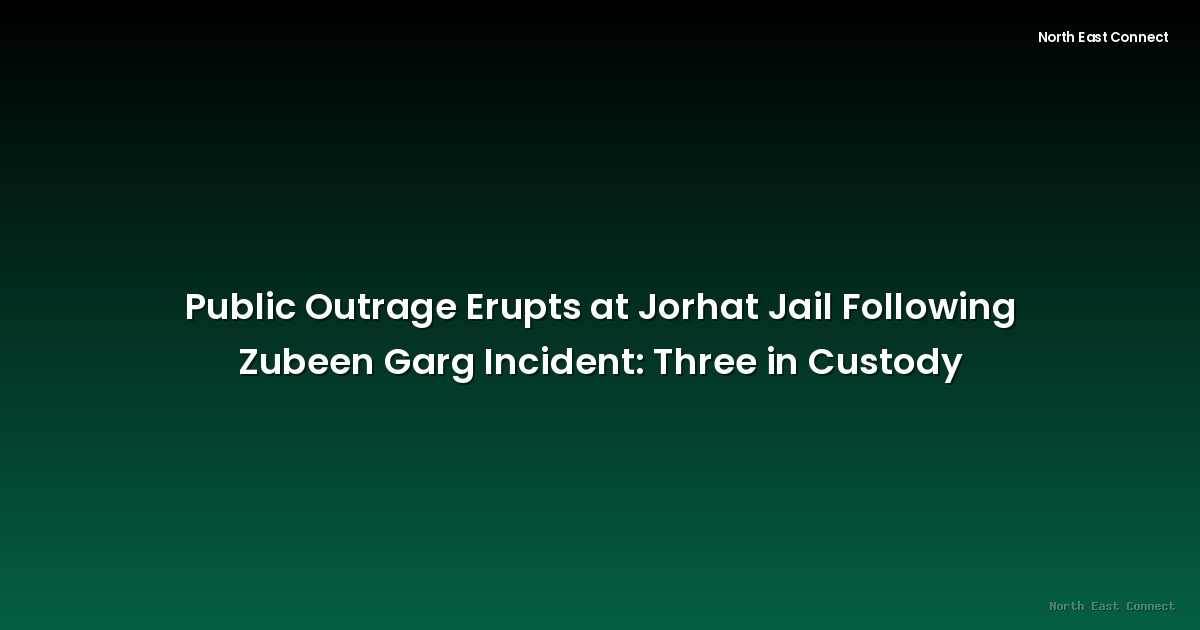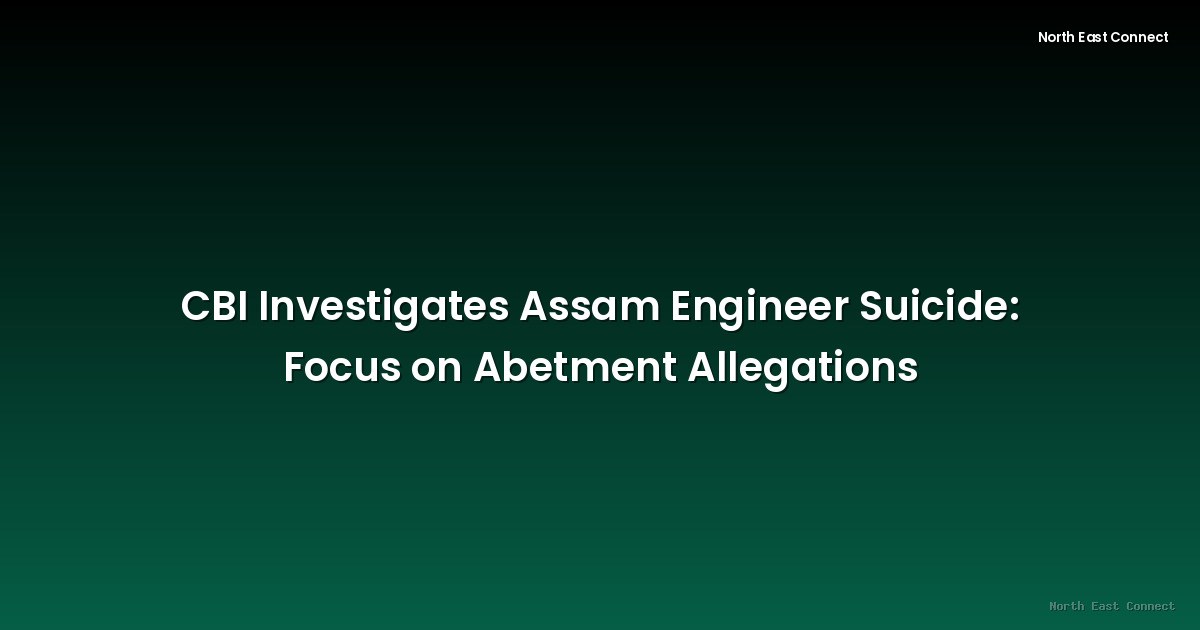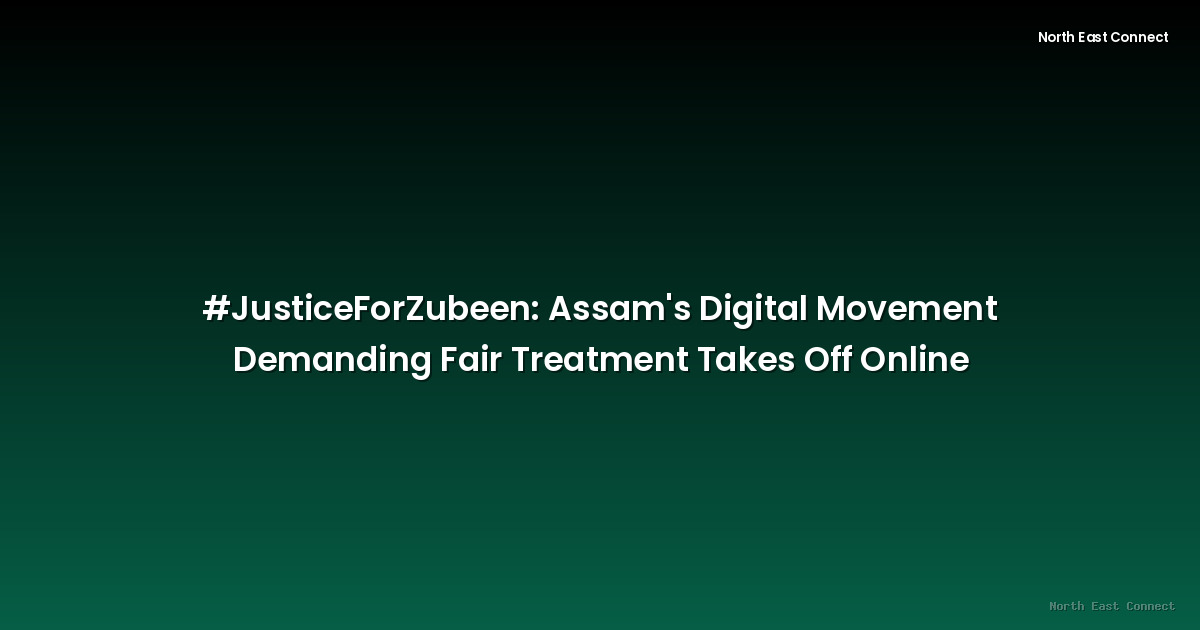2025-08-17 · News
The Chief Ministers of Assam and Meghalaya, Himanta Biswa Sarma and Conrad K Sangma, respectively, convened a significant meeting in Guwahati on [Insert Date from Original Article if available, otherwise remove this sentence]. The primary focus of their discussion centered on finding amicable resolutions to the long-standing border disputes that have plagued the relationship between the two northeastern states. While specific details of the closed-door discussions remain largely undisclosed, the meeting signifies a renewed commitment from both leaders to fostering inter-state cooperation and finding lasting solutions.
The boundary dispute between Assam and Meghalaya has a complex history, rooted in differing interpretations of colonial-era demarcation agreements. This historical ambiguity has led to numerous instances of conflict and tension between the two states over the years, affecting local communities and hindering regional development.
The meeting in Guwahati aimed to build upon previous efforts to de-escalate tensions and find common ground. Reports suggest that the Chief Ministers explored various strategies, potentially involving joint surveys, consultations with local stakeholders, and the establishment of mutually agreeable mechanisms for resolving future disagreements. The emphasis was likely placed on finding solutions that respect the interests of all affected communities and promote peaceful coexistence. While no immediate breakthroughs were publicly announced, the very act of the two leaders meeting and engaging in productive discussions is considered a positive step forward.
The long-term impact of this meeting will depend on the follow-up actions taken by both state governments. The successful resolution of the border dispute would not only benefit the people of Assam and Meghalaya but would also serve as a model for conflict resolution in other parts of the Northeast. The commitment to dialogue and collaboration demonstrated by both Chief Ministers offers a glimmer of hope for a more peaceful and cooperative future between the two states. Further updates on the progress of these discussions are anticipated in the coming weeks and months. The public awaits concrete details regarding the strategies agreed upon and a timeline for implementation.
The success of this initiative hinges on sustained commitment and collaboration between both states, fostering a climate of trust and understanding. The need for transparent communication with affected communities remains crucial throughout the process. The meeting serves as a reminder that constructive dialogue and a commitment to finding common ground are essential for resolving complex regional disputes.







